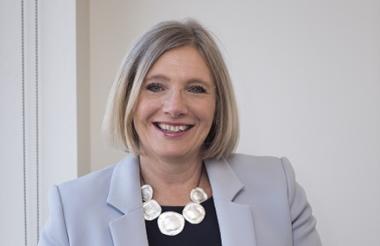The chief executive of the Charity Commission has warned that the sector will face a “test of leadership and resolve” as they emerge from the Covid-19 pandemic.
Speaking at Wales Council for Voluntary Action’s online “gofod3” event yesterday, Helen Stephenson said charities currently operate in one of the “toughest economic climates in a generation” and may face “significant financial pressures” in the coming months.
She said: “The cost-of-living crisis may have a significant impact on charities across Wales and England.
“It is to charities that many families will turn for help when they find it difficult to pay the bills. At the same time, many of those who previously donated regularly and generously to charity will feel the pinch in the months ahead, and some may curtail their charitable giving.
“For some charities, this may mean facing a double squeeze of increased demand and reduced income.”
However, she pointed out that times of crisis, such as the ongoing war in Ukraine, often show charities at their best and the public at their most generous.
“But when people feel the pinch, when budgets are squeezed, they also crave evidence that charities are what they say they are, and that people’s hard-earned money is being put to good use,” she said.
“So it's important that the public knows there’s a regulator who is unafraid to step in when needed, willing to hold trustees and charities to account.”
Difficult months ahead
Stephenson said the challenges facing the sector are not just about making ends meet and securing donations and funding they need to continue to operate.
“The months ahead may present a wider test of leadership and resolve,” she said.
“Scrutiny of charities and their management – especially their financial management – may well intensify, and if that happens, leaders will need to explain their decisions openly and with integrity.”
She went on saying that the Commission cannot shield charities from media scrutiny and criticism from high-profile individuals, urging trustees to ensure “every penny you spend, and every decision you take, serves your purpose and the people you exist to help”.
She advised charities to “ensure your accounts and public communications paints a clear and vivid picture of how you translate the money and resources you hold into lives improved, and communities strengthened.”
Building a trusted relationship with trustees is ‘key’
Stephenson reiterated the Commission’s commitment to better engage with trustees, as outlined in its business plan for 2022-23.
According to her, trustees are more likely go to their peers when seeking information than to the Commission.
The Commission is doing work to change this, notably through tools such as the upcoming charity portal and five-minute guides.
Stephenson said: “Reaching out and being able to have a relationship with those trustees for me is really key, because relationship builds trust. And all of that work is about building the muscle of the Commission that is there to be supportive to stop things going wrong. We have to do both of those things robustly.”
Touching on equality, diversity and inclusion within the sector, Stephenson recognised that charities that have a diverse group of trustees with different perspectives are more attuned to issues around these topics.
She said: “Our desire in the Commission is to make sure that trustees make good decisions. My perspective on this is that if you have a more diverse and inclusive trustee base, then that will help trustees make better decisions that reflect the communities they serve.”
Related articles












